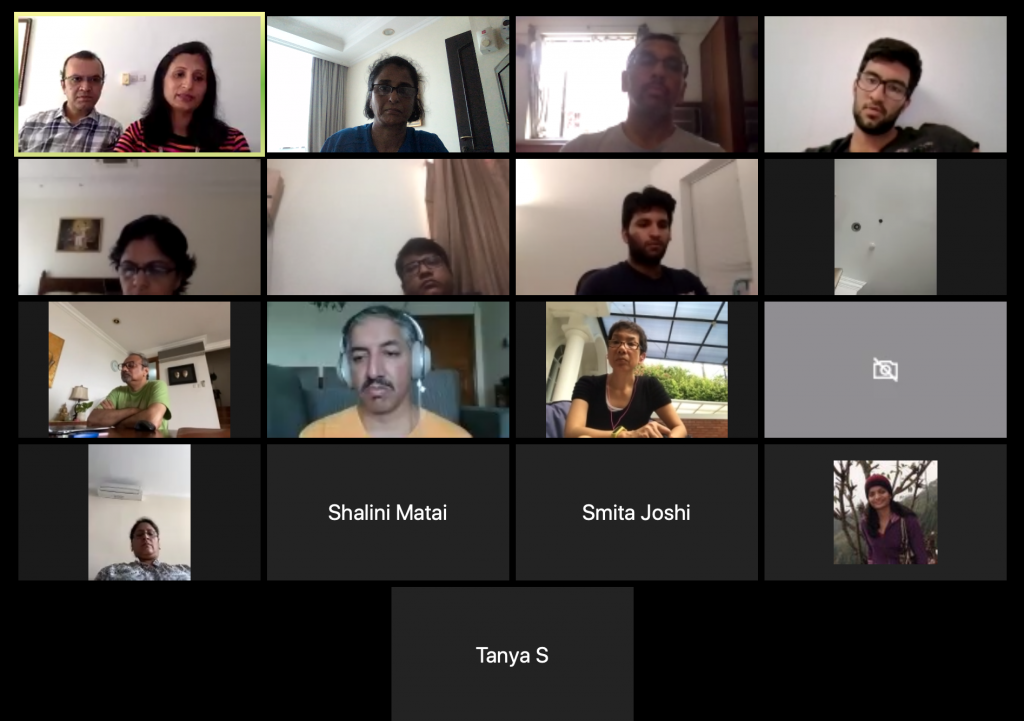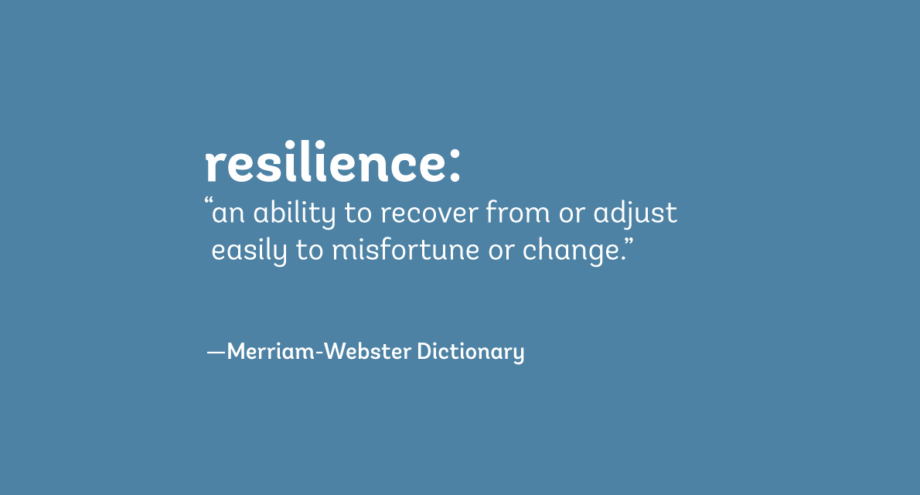How are you coping with the current global crisis at a personal level?
We are all facing unprecedented global crisis collectively, against an invisible enemy. The coronavirus pandemic has changed the world in a matter of weeks. It is a crisis that all the human beings have not faced in their lifetimes. Offices/industries, educational institutes closed, countries in lockdown, travel restricted – our way of life is now being challenged.
What is Resilience? How do you recognize resilience and build a resilient self?

The dictionary explains resilience as the ability to harness inner strength that helps us mentally or emotionally cope with a crisis or to return to pre-crisis status quickly.
Adversity is a fact of life. Resilience is that ineffable quality that allows people to be knocked down by life and come back at least as strong as before. Rather than letting difficulties or failure overcome and drain resolve, they find a way to rise.
A lack in resilience, manifests as feeling victimized, being overwhelmed or turning to unhealthy coping mechanisms, spiralling down to depression. However, resilience isn’t about toughing it out, being stoic or going it alone. In fact, being able to reach out to others for support is a key component of being resilient.
Resilience won’t make problems go away — but resilience is the ability to see past them, find enjoyment in life and better handle stress. If you aren’t as resilient as you’d like to be, you can develop skills to become more resilient.
Like building a muscle, increasing your resilience takes time and intentionality. Focusing on four core components — connection, wellness, positive thinking and meaning — can empower you to withstand and learn from this difficult and challenging phase.
Tips to improve your resilience

The online session facilitated by Shalini and Lalit Matai created a space for collective learning, interaction and sharing. To increase your capacity for resilience to weather — and grow from — the difficulties, here are some strategies.
- Get connected.Building strong, positive relationships with loved ones and friends can provide you with needed support and acceptance in both good times and bad. Establish a routine to reach out and connect during this era of social distancing via technology.
- Make every day meaningful.Do something that gives you a sense of accomplishment and purpose every day. Set goals to help you look toward the future with meaning.
- Learn from experience.Think of how you’ve coped with hardships in the past. Consider the skills and strategies that helped you through rough times. You might even write about past experiences in a journal to help you identify positive and negative behavior patterns — and guide your future behavior.
- Remain positive.You can’t change the global crisis that we are all facing, but you can always look toward the future. Accepting and even anticipating change makes it easier to adapt and have less anxiety.
- Take care of yourself.Tend to your own needs and feelings. Participate in activities and hobbies you enjoy. Include physical activity in your daily routine. Get plenty of sleep. Eat a healthy diet. Practice stress management and relaxation techniques, such as yoga, meditation, guided imagery, deep breathing or prayer.
- Be proactive.Don’t ignore your problems. Instead, figure out what needs to be done, make a plan, and take action. Learn new skills online, develop your interests and hobbies, and be creative.
A roadmap for ordinary people thrust into extraordinarily challenging circumstances, and emerging even stronger than before.







